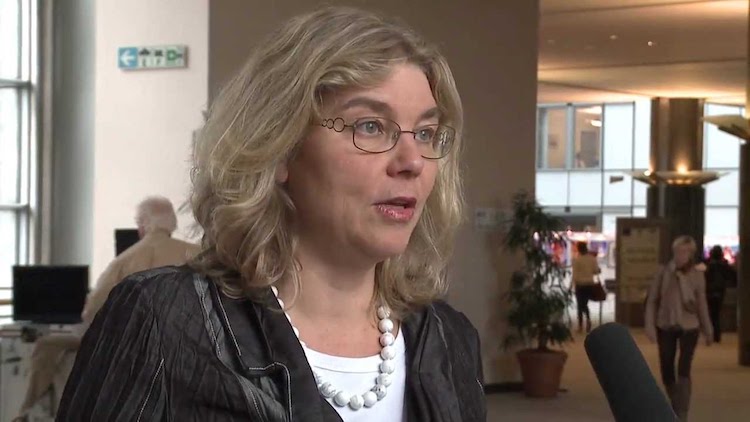Viewpoint by Mirjam van Reisen
Prof. Mirjam van Reisen, Ph.D. is member of the Dutch Council on International Affairs and author of Human Trafficking and Trauma in the Digital Era: The Ongoing Tragedy of the Trade in Refugees from Eritrea. She is Professor International Relations, Innovation and Care at Tilburg University and Professor Computing for Society at Leiden Centre for Data Science, at the University of Leiden. She is also the founding director of Europe External Policy Advisors and the Secretary General of Europe External Programme with Africa. – The Editor.
THE HAGUE (IDN) – A refreshing set of directives are offered by the Minister of Foreign Trade and Development Cooperation of the Netherlands, Sigrid Kaag, in the policy document entitled ‘Investing in a Perspective. Good for the World – Good for The Netherlands’, approved by the Dutch cabinet on May 18, 2018.
The central aim of the policy is identified as prevention. Prevention is necessary in order to curb the increasing humanitarian costs of conflict, poverty and climate change. Investing in Prevention is cost effective: it offers an alternative approach, necessary in a world that seems to snowball from crisis to crisis, and it gives hope. Hope is what is needed in a world in which more than ever people are uprooted, families fragmented and sons and daughters disappear to never be united with their loved ones again.
Migration, the Minister rightly identifies, is not the root cause, but it is a tragic symptom of intractable conflict, out-of-control repression and the increasingly despairing effects of climate change in places where previously fertile soil provided the source of livelihood and protection to many.
The Minister also points out that no one can do this alone. Her vision requires a shared responsibility, in which the governments and humanitarian organisations join hands with the private sector to deliver economies that provide jobs and opportunities. It is necessary in view of the demographic explosion in Africa where half of the population will be under the age of 25. The young people need perspectives because they would seek a future and want to be active in a world that has perhaps never known a larger divide grounded on inequality.
The White Paper zooms in on how her plans can find support in the region. A dignified approach is proposed with emphasis on basic needs and education as well as on support of trauma relief. It was encouraging to see such a central place is granted to trauma relief. In our own research, the relevance of trauma relief has come up as a surprisingly crucial element of prevention.
In Northern Uganda and in Ethiopia researchers investigated the impact of social protection and support to livelihoods on social-economic resilience. The researchers found that relief of trauma had a higher positive impact on income than support provided in cash.
Our research concluded that giving support in cash or in kind is much more effective when such assistance is provided with support to heal trauma. Impoverished communities who have suffered the consequences of detention, torture, extortion and sexual violence are in dire need of understanding the consequences of such experiences on their mind.
Traumatic events keep the past experiences of violence present in the mind and feed the anxiety of already uprooted people, in search of a place where they may feel protected and can find a place to stay in peace. The understanding of trauma and healing of it helps victims to be more resilient and to utilise the opportunities available to them. It reduces risk-taking behaviour.
It allows them to think slow – considering their options properly; rather than thinking fast, prompting flee, fright or flight responses to situations that are seen as dangerous through the lens of a traumatised mind.
Prevention is cost effective. Expensive humanitarian operations can be avoided with less expensive investments in prevention focused on health, mental health, education and employment. New technologies can help in making these cost-effective. In research conducted by one of our researchers a mental health app provided on a mobile phone to youth refugees performed as good, if not better, then traditional western mental health practices based on counselling.
Supporting a better world is in everyone’s interest. The Dutch leadership is welcome as an alternative approach to unilateralism and polarisation, divisions and war threats. What can The Netherlands do, a country that is the fourth productive economy of the world, to help create jobs through innovation and to ensure such innovation is relevant to provide world-wide inclusion.
The White Paper takes inspiration from the African philosophy of ‘Ubuntu’ (‘I am because we are’). The Dutch model of collaboration has served as inspiration for a new fund to support the realisation of the Sustainable Development Goals. Bringing together, what is referred to as he Dutch Diamond: Government, Private Sector, Financial Institutions, Civil Society Organisations, and Knowledge Institutes.
Minister Kaag has presented a daring and powerful vision: What is good for you, is good for me, is good for us. The focus on prevention of this new White Paper gives a perspective of hope that can help the world unite as a better place to live in dignity and belonging. [IDN-InDepthNews – 20 May 2018]
Image: Mirjam van Reisen in YouTube on Human Trafficking in the Sinai.
IDN is flagship agency of the International Press Syndicate.
facebook.com/IDN.GoingDeeper – twitter.com/InDepthNews

